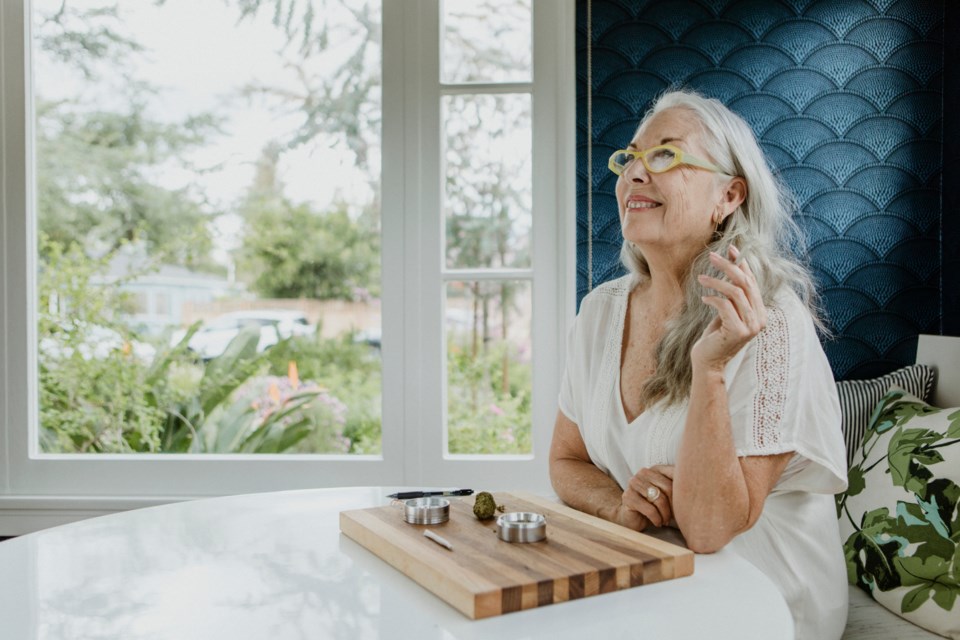Three years have passed since legalizing cannabis in Canada. From boosting the economy to improved product and purchasing safety, the benefits of its decriminalization are clear.
A recent report by Deloitte Canada and the Ontario Cannabis Store states that since cannabis was legalized in 2018, it has contributed $43.5 billion to Canada's GDP and $13.3 billion to Ontario's GDP.
"From an economic perspective, we're pulling that economic benefit out of the illicit market where it was falling into the hands of organized crime," said Robert Carroll, the owner and operator of Due North Cannabis Co. based in Sault Ste. Marie.
The report also found the industry has created 151,000 jobs, and for every million dollars in revenue, the cannabis sector sustains four jobs in both Canada and Ontario, an important feat as many jobs and small businesses were severely affected by the COVID-19 pandemic.
A particularly important role of the regulated supply chain is ensuring the products are safe and labelled accurately. This is achieved through mandatory potency and microbial testing, in addition to strict requirements for health warnings and accurate labelling, Carroll explained.
A recent study by the New Brunswick Research and Productivity Council found potency claims on illicit products were significantly less accurate than legal products and often fell below the level claimed.
For users who base their consumption on potency, this can be dangerous, Carroll noted. Accuracy in the THC claims of the illicit dried flower ranged from 43% to 73%, whereas the accuracy of the legal products ranged from 88% to 100%.
“That’s a big difference when it comes to dosage and responsible consumption, and generally why so many consumers have heard horror stories when it comes to consuming illegal edibles,” he explained.
Additionally, the study noted that illicit edible packages did not meet the Cannabis Act regulations as they lacked a security feature for child proofing and increased the risk of underage consumption with their cartoon illustrations and physical imitation of popular candy products which could be appealing to youth.
In addition to testing potency, Health Canada also looks for harmful substances like E-Coli, Salmonella, heavy metals and harmful residues from pesticides.
Carroll explained that if the products don't pass the Health Canada thresholds, the products are irradiated to kill any harmful bacteria. Or they may not be designated for sale at all. Growers in the illicit market simply do not have to meet the same rigorous standards and they have an incentive to market their products regardless of the potential harm.
The New Brunswick Research study detected several microbial contaminants in the illicit edible samples but none in the legal products. The study speculates that this is likely because licensed products operate in sterile, controlled environments that meet regulatory standards.
"It can be the perfect breeding ground for bacteria if you're not abiding by the proper sterilization practices," Carroll noted, adding that production facilities must pass rigorous security and Health Canada approved operating procedures.
"I was part of the inaugural team at a licensed producer, and I would often tell new hires that over half of the job is just cleaning and sanitizing," he said. "These are pharmaceutical grade facilities that ensure the consumer product is safe for consumption and allows consenting adults to dose appropriately."
According to the 2021 Canadian Cannabis Survey, 25% of Canadians reported using cannabis in the past 12 months.
"There's clearly a demand," Carroll said. "But we have to ensure we're meeting the demand responsibly."
Strict requirements for operators outlined in the Cannabis Act include passing an RCMP background check, restrictions on the store location — there must be a 150-meter buffer zone between cannabis stores and schools/daycares — and banning any advertisement that may appeal to underage individuals.
"When we design these stores, you cannot see any cannabis from the exterior," he said. "This is to ensure that minors under the age of 19 are not able to view cannabis products or information."
The promotion prohibitions under the Cannabis Act are strict laws that prohibit any person from promoting cannabis. However, the Act does provide exceptions for certain information, point of sale and brand preference promotions.
"We're doing it in a safe, consistent way that ensures we keep it out of the hands of youth," he explained.
Additionally, Carroll explained that all bud-tenders — the cannabis equivalent to a bartender — must be CannSell certified, meaning they've undergone Ontario's mandatory cannabis retail training, which includes education on the cannabis classes, how consumption methods affect consumer experiences, recommendations for responsible consumption and requirements to ensure the responsible sale of the products.
"A big part of that is ensuring they do not serve intoxicated customers, and they also cannot serve anyone more than 30 grams at a time," he said.
Carroll's store, Due North Cannabis, is a family-run and locally owned and operated company.
"The Due North brand is designed for the Sault and built by the Sault," Carroll noted. "We incorporate local talent and materials wherever we can. We also engage with our local community to raise donations for those in need and highlight other local businesses in the process through our Support Local Program."
Due North Cannabis currently has two locations to serve the Soo – find them in Churchill Plaza and Pine Plaza. A third store location in Sault Ste. Marie will be opening at 710 Second Line East. To find out more information, visit the Due North website.
